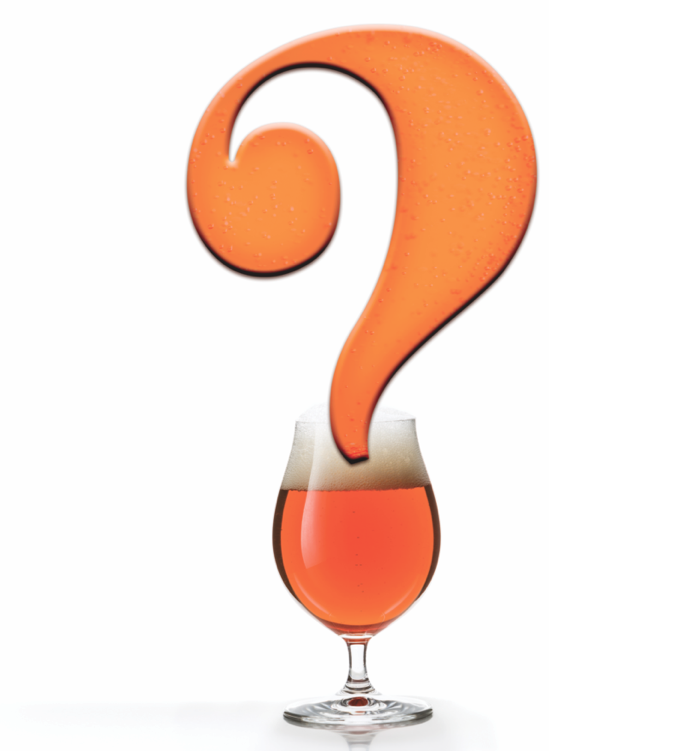BYO’s Belgium Brewery, Biking & Hiking Tour
We recap and share pictures from a week BYO’s publisher and a group of readers spent exploring Belgium’s breweries, beer cafes, and scenic countryside.
Don’t miss our New England Beer & Baseball adventure in 2026! Click here to register!
In this issue, explore the spectrum of light and dark lagers. Plus, Fermenting Lagers, Extract vs. All-Grain, and Saisons.
We recap and share pictures from a week BYO’s publisher and a group of readers spent exploring Belgium’s breweries, beer cafes, and scenic countryside.

From Germany and the Czech Republic, to the Baltics and North America, dark lager styles are seeing growing popularity among craft brewers and homebrewers alike. The styles are all different, but also share commonalities in how they are created. Get tips for brewing your own crisp dark lager this winter.

Doppelbock is one of our favorite brews to make each year. Ferment low and slow to ensure a very smooth and malt-forward beer that can withstand the high alcohol.

Tmavé pivo is the overlying style of Czech dark lager. We use an extensive malt bill to add depth to the final beer while eliminating as much of the roast character as possible. Supremely drinkable and one of our favorites to make!

This recipe snagged a silver medal for Oakshire at the 2018 World Beer Cup.

A mix between Vienna and dunkel lagers, we incorporate polenta (coarse ground cornmeal) to build a crisp body, while using Mexican coffee honey for a touch of sweetness and flavor, while helping the body dry out during fermentation.

Kellerbier is the beer of choice throughout much of Germany’s Franconia region. Yet, it is difficult to define kellerbier as there are hundreds of examples that may be pale or quite dark, and taste equally unique. Learn about the history of these young, unfiltered lagers from a brewer who spent a decade at the source, plus tips on brewing your own at home.

An unfiltered Franconian lager with a bready malt character that is balanced by soft carbonation and clean Perle hops.

The end result is beer, but there are many ways to get there. There are pros and cons to brewing with malt extract, brewing all-grain batches, or falling somewhere in-between. We break down the basics of these approaches so prospective homebrewers and those new to the hobby can better understand the basics and decide which method fits their goals.

This simple brown ale recipe illustrates the differences between brewing all-grain batches and extract batches of beer with extract replacing one malt in the ingredients and different techniques to get your wort in the boil kettle.

When viewed as an opportunity, the craft beer world can open doors in places throughout the world. One woman is bringing her experience and teachings to show the next generation of fellow South Africans what beer can do for them. Be sure to read about the Beer is Art movement

Have you ever thought about projecting a digital image on your kegerator’s faucet handle? One homebrewer figured out how to make it happen and it’s definitely worth a look.

Once your equipment is clean, any gear that touches your wort and beer after the boil should be sanitized. Take a walk through the various ways homebrewers can achieve sanitation.

With roots in the agrarian lifestyle in northern Europe, many brewers pigeon-hole saisons to look and taste a certain way. But the truth is that it is a fairly diverse class of farmhouse ales. Learn about many of its renditions and a recipe.

I like my saisons like my cocktails, with some rye in them. In this case, I’m using some flaked rye but malted rye can be substituted.





Brewers often have a specific routine when it comes to lautering their mash. But in reality it’s a very forgiving process. Mr. Wizard provides his thoughts on this key step as well as overcarbonated kegs, a frozen beer crisis, and brewing calculations

Craft beer lovers in the Massillon, Ohio, area scored big when corporate America let go the Founder and Owner of Paradigm Shift Craft Brewery. Learn about the brewery’s rise and one of its iconic beers, Neighbor Girl Tripel.

Continental Pilsner malt makes up the majority of the base with a few specialty malts for character. The secret ingredient to this 8.2% ABV, 3.7 SRM tripel is a heavy-handed addition of Belgian candi sugar.

Too many breweries find out the hard way they’re not properly tracking their true profits and losses. Using key performance indicators, or KPIs, is one way to do so. Learn how to calculate them and which ones you should be looking at.

While they can be time consuming, making them isn’t hard. Get the scoop on using and making your own sugar syrups for your brews.

Three brewers churning out award-winning lagers share cool tips on fermenting and lagering that homebrewers can employ on their own homebrew setups.